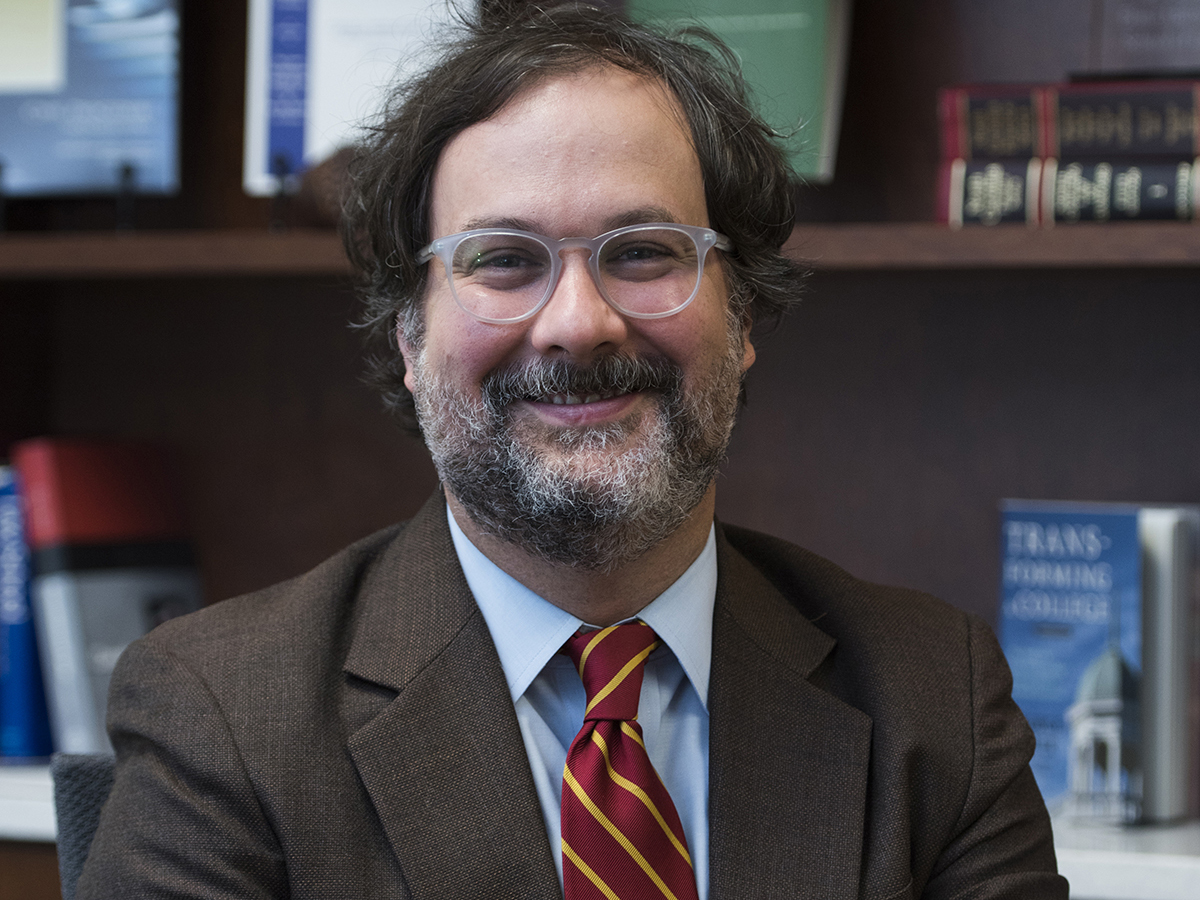Professor Enrique Armijo described limits of First Amendment protections for NPR's report on the longterm impact of a doxxing incident tied to the Israel-Hamas conflict.
An Elon University School of Law scholar of the First Amendment provided expert commentary in a recent NPR report on “doxxing,” the practice of publishing someone’s personal information online in an act of punishment or revenge.
Professor Enrique Armijo spoke with journalist Mansee Khurana for “Most doxxing campaigns only last a few days. But the effects can be felt for months” on the April 11, 2024, broadcast of Morning Edition.
Khurana’s report told the story of a woman in Brooklyn who was caught on camera last fall tearing down a poster in support of Israeli hostages held by Hamas. The woman lost her job when she was identified online and thousands of emails to her employer demanded she be fired. The state denied her unemployment claim.
Armijo shared how the First Amendment only applies to the government restricting speech. “We’re not really talking about the First Amendment with respect to private people who are posting flyers or tearing down flyers or saying things about other people on social media,” he added.
Armijo is a Fellow at George Washington University’s Institute for Data, Democracy & Politics, and an Affiliate Fellow of the Yale Law School Information Society Project and the University of North Carolina-Chapel Hill’s Center for Information, Technology, and Public Life.
He teaches and researches in the areas of the First Amendment, constitutional law, torts, administrative law, media and internet law, and international freedom of expression. His scholarship addresses the interaction between new technologies and free speech.
Armijo has been cited in recent months by national media covering Dominion’s lawsuit against FOX News, as well as news coverage of the libel lawsuit brought against Infowars founder Alex Jones by the parents of children killed in the 2012 Sandy Hook school shooting.



